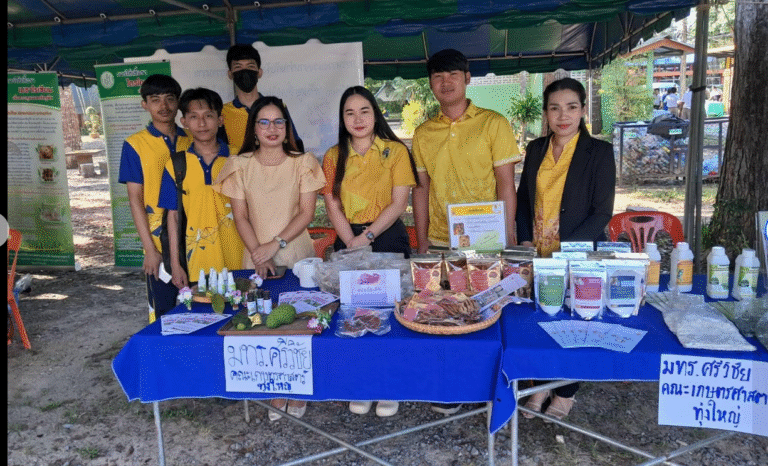Reporters:
Asst. Prof. Dr. Nattapon Kaewthong
Asst. Prof. Chayanat Buathongkua
Asst. Prof. Tanakorn Inthasuth
Ms. Sayamon Buddhamongkol
Ms. Duanrung Chooyruang
Evidence Date:
Feb 21, 2023, March 10, 2023
Related SDGs:
Related Indicators:
13.3.1
Details:
Rajamangala University of Technology Srivijaya (RUTS) has actively engaged in community outreach to enhance capacity in climate change adaptation and resilience. The outreach and engagement initiatives focus on sustainable natural resource and agricultural management through collaboration with local communities. This approach emphasizes the integration of advanced technology with community-based learning. Key projects include the following:
1. Project to Improve Water Management Efficiency and Fair Distribution in the Sathing Phra Peninsula:
This initiative addresses water management challenges in the Sathing Phra Peninsula, an area impacted by climate change. Researchers from RUTS collaborated with local leaders to evaluate water management systems and introduced real-time salinity monitoring systems in water sources. This monitoring provides accurate data every two hours, helping farmers adapt cultivation practices, reduce the risk of saline intrusion, and plan freshwater usage more effectively.
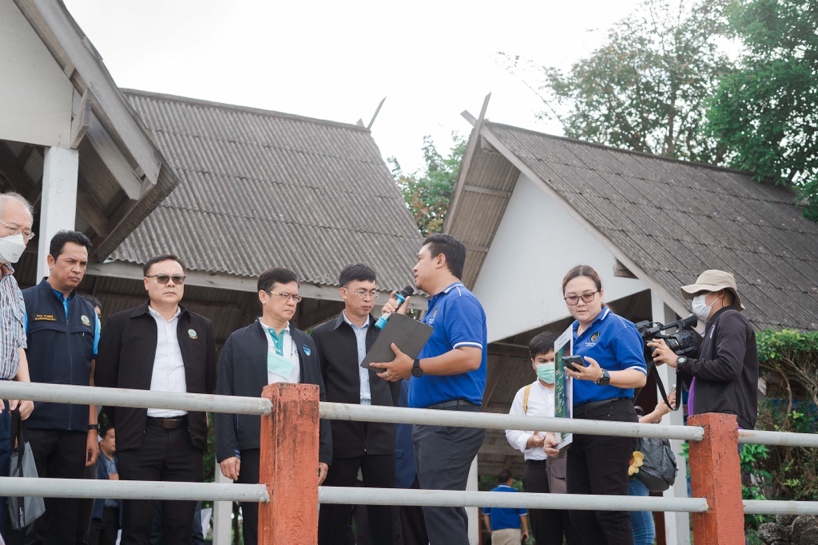
This initiative also utilizes solar energy for salinity monitoring, making it not only environmentally friendly but also reducing long-term operational costs. Meanwhile, the community participates in climate adaptation learning processes through workshops and training sessions on changes in water levels and water quality, which impact agriculture. Ensuring fair water distribution and improving regional water distribution networks are crucial for enhancing water security and building community resilience against climate variability.
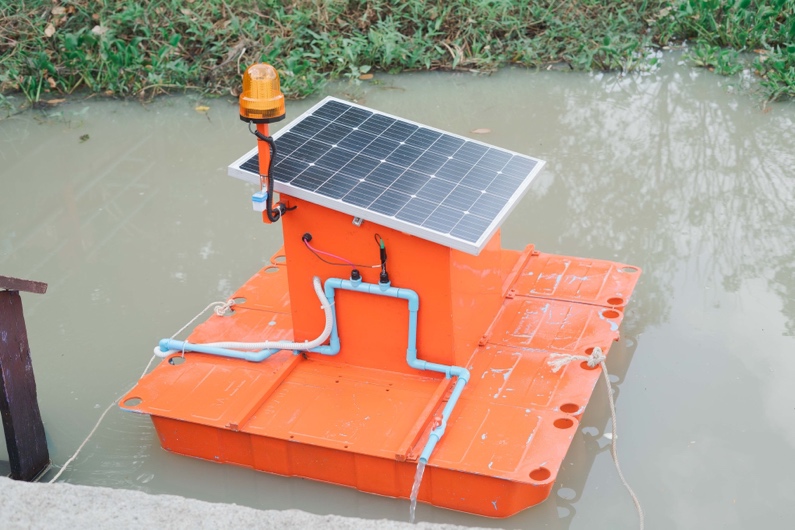
The university has also organized educational activities to strengthen community knowledge on adapting to climate change, with a focus on water management and agriculture in areas vulnerable to climate variability. In the Sathing Phra Peninsula, workshops have been conducted to teach farmers about agricultural adaptation practices, such as avoiding water-intensive crops during the dry season, shifting to salt-tolerant crops, and optimizing water resource use.
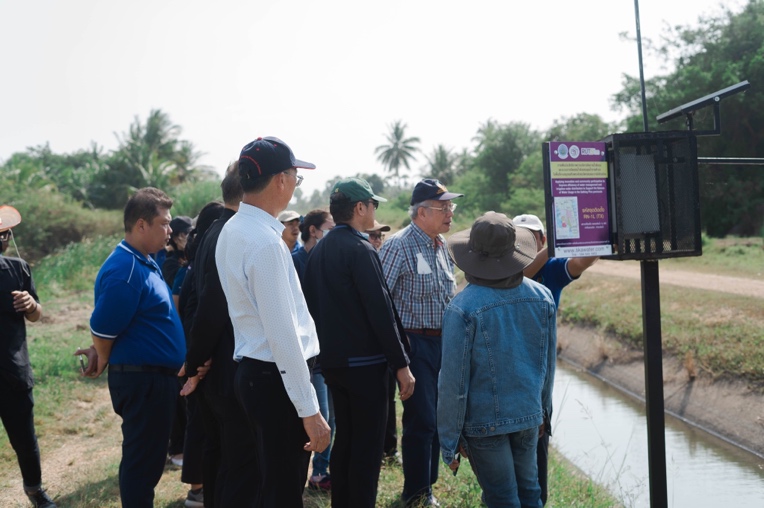
Additionally, a water distribution mapping system has been developed to help communities better understand water flow and distribution. This enables them to design fair and appropriate water allocation for agriculture and consumption. These maps empower communities to respond effectively to changes, providing them with the tools to plan future water usage and reduce conflicts related to water management.
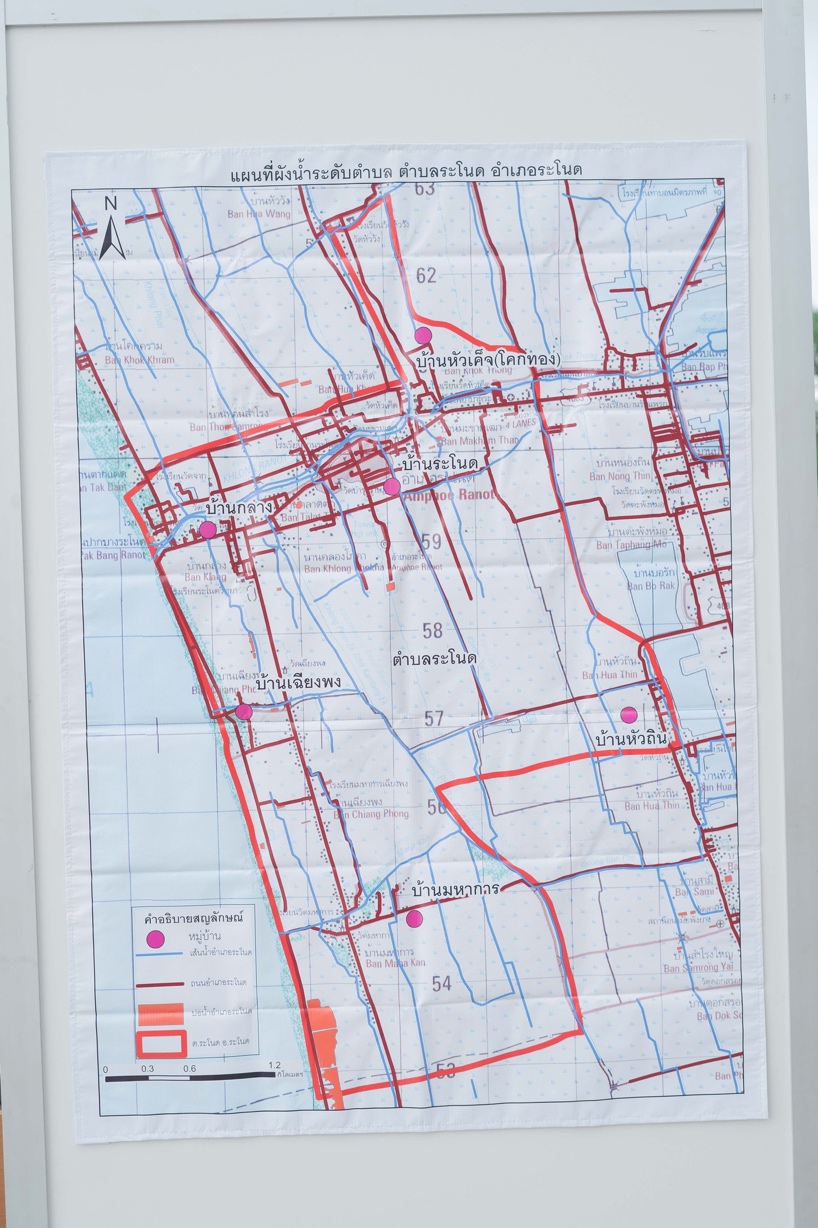
2. Project on Applying IoT Technology for Sustainable Agriculture:
RUTS has collaborated with agricultural cooperatives and stakeholders in Trang Province to implement Internet of Things (IoT) technology for sustainable water management in agriculture. This initiative aims to reduce energy consumption and mitigate the impacts of climate change. The IoT technology developed enables an irrigation system that can monitor and control water usage automatically, effectively reducing water and energy waste. Additionally, it helps decrease greenhouse gas emissions from agricultural practices.
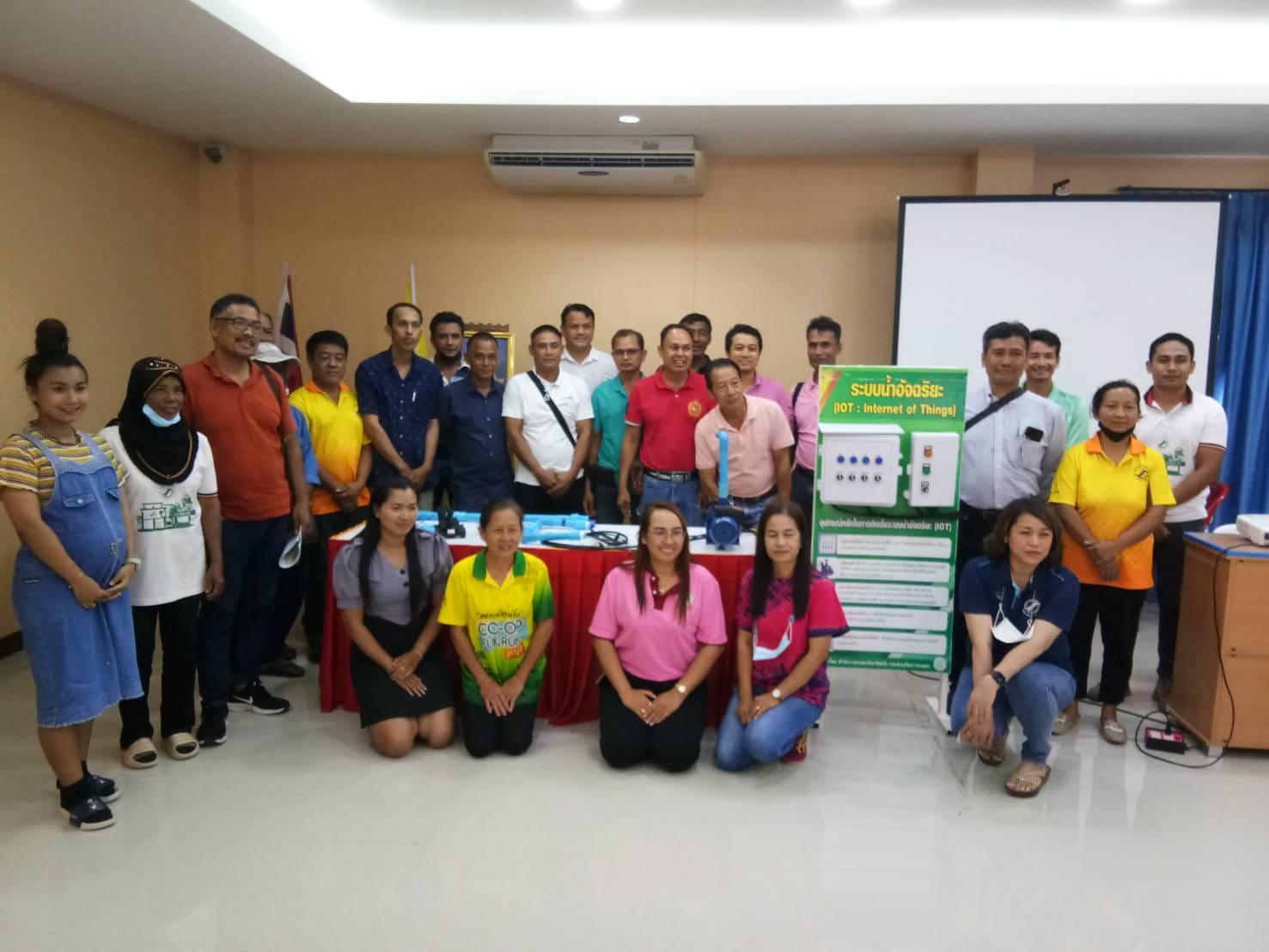
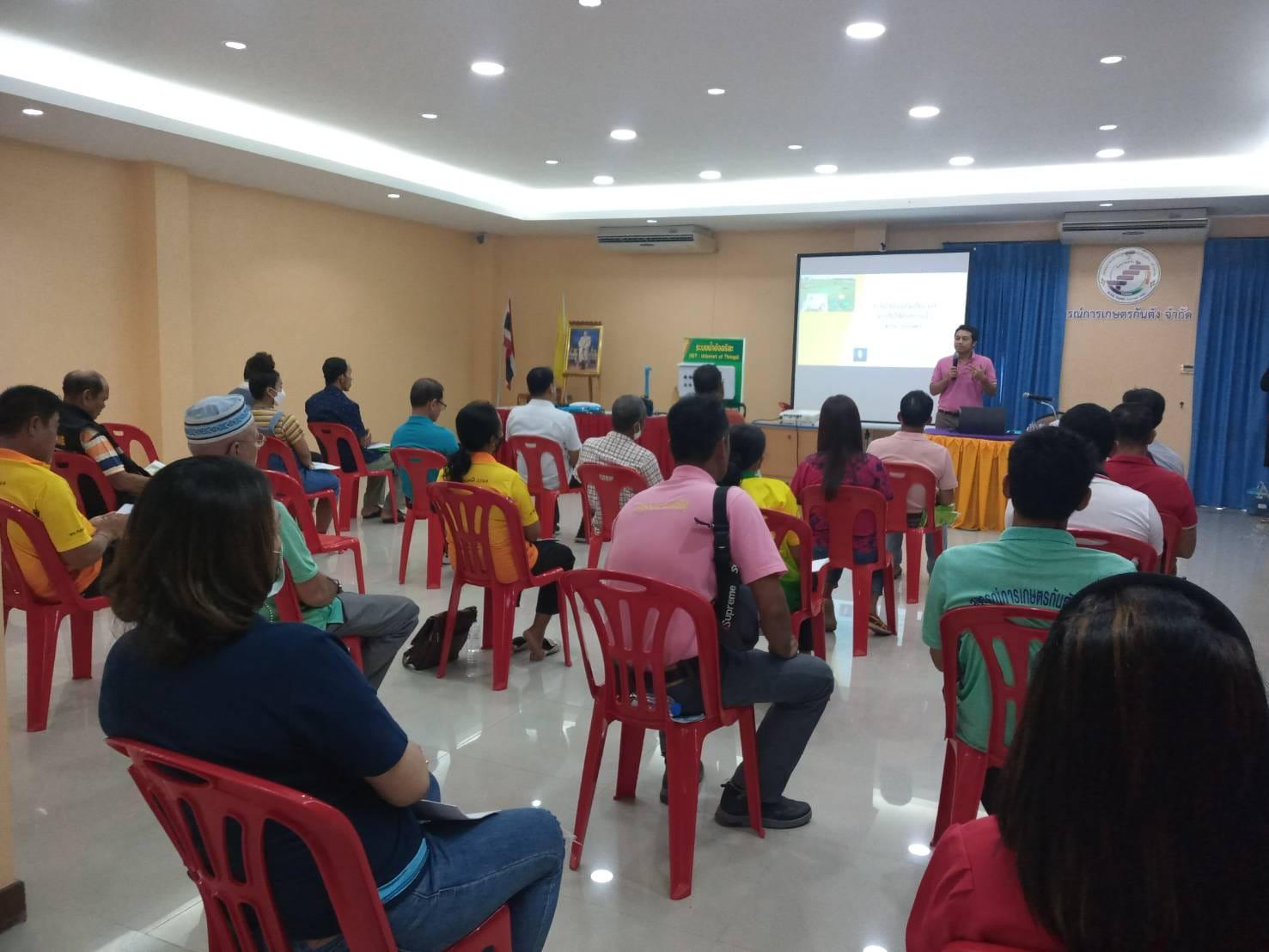
The training sessions organized under this project aim to build knowledge about IoT in sustainable water and resource management. They also provide guidance to farmers on using technology that reduces resource consumption, minimizes environmental impact, and helps local farmers better adapt to climate change. This project exemplifies sustainable development through the integration of technology in the community and enhances the use of smart technology to promote resilience among agricultural communities in southern Thailand.
Outcomes and Importance of Outreach and Engagement Efforts
The outreach and engagement work of Rajamangala University of Technology Srivijaya reflects the university’s role in promoting and supporting communities in developing knowledge and technology to address climate change. Innovations developed under this initiative focus on creating sustainability in agriculture and water management, essential factors for enhancing security and resilience in local communities, especially in the southern regions sensitive to climate impacts. The projects carried out under the Outreach and Engagement category not only apply knowledge and technology to community development but also foster networks and community involvement in the planning and management of critical local resources. These efforts form a crucial foundation that enables farming communities and stakeholders to sustainably utilize resources and adapt more effectively to future changes.
Related Link:



